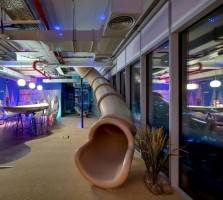October 2, 2015
Caring employers key to improving mental wellbeing at work 0
 With one in four adults experiencing a mental health condition in any given year, a caring and supportive boss is the missing link between employee engagement and mental health. This was the message of a MetLife breakfast briefing in partnership with Buck Consultants at Xerox, where the impact of ignoring mental health in the workplace was discussed. MetLife’s UK Employee Benefit Trends Study has found that for every one point increase in “having a caring and supportive boss” there is a 9 percent increase in employee engagement. Key themes of the briefing included the best strategies for identification and prevention of mental health issues, and how to build a more resilient workforce. It also emerged that employers are almost unaware of the negative impact insufficient sleep has on employees’ mental wellbeing, yet along with stress and work life balance – insufficient sleep is seen as a key health concern.
With one in four adults experiencing a mental health condition in any given year, a caring and supportive boss is the missing link between employee engagement and mental health. This was the message of a MetLife breakfast briefing in partnership with Buck Consultants at Xerox, where the impact of ignoring mental health in the workplace was discussed. MetLife’s UK Employee Benefit Trends Study has found that for every one point increase in “having a caring and supportive boss” there is a 9 percent increase in employee engagement. Key themes of the briefing included the best strategies for identification and prevention of mental health issues, and how to build a more resilient workforce. It also emerged that employers are almost unaware of the negative impact insufficient sleep has on employees’ mental wellbeing, yet along with stress and work life balance – insufficient sleep is seen as a key health concern.


















 The allure of London for Generation Y appears to be fading, according to
The allure of London for Generation Y appears to be fading, according to 


 One of the most typical claims that suppliers in this sector make about their products is that they will make people more productive at work. Many go so far as to put numbers on what this means, and usually not just 0.4 percent or whatever but something far more. We can understand why they do this because they are seeking to link workplace productivity to whatever it is they have to sell. This is often tenuous for at least two reasons. The first is that even when such a causal link is demonstrably true, it still assumes that all other things at work are equal, whereas they never are because there are so many factors involved. That is why you will find some people cheerfully working in shabby, cluttered, underlit offices while others mope around unhappily in gilded cages with expensive chairs, soaring daylit atria and olive groves. The second is that such claims simply ignore what makes people tick.
One of the most typical claims that suppliers in this sector make about their products is that they will make people more productive at work. Many go so far as to put numbers on what this means, and usually not just 0.4 percent or whatever but something far more. We can understand why they do this because they are seeking to link workplace productivity to whatever it is they have to sell. This is often tenuous for at least two reasons. The first is that even when such a causal link is demonstrably true, it still assumes that all other things at work are equal, whereas they never are because there are so many factors involved. That is why you will find some people cheerfully working in shabby, cluttered, underlit offices while others mope around unhappily in gilded cages with expensive chairs, soaring daylit atria and olive groves. The second is that such claims simply ignore what makes people tick.















September 24, 2015
Weighing up the pros and cons of the BREEAM environmental standard 0
by Charles Marks • Comment, Environment, Facilities management, Workplace design
More →